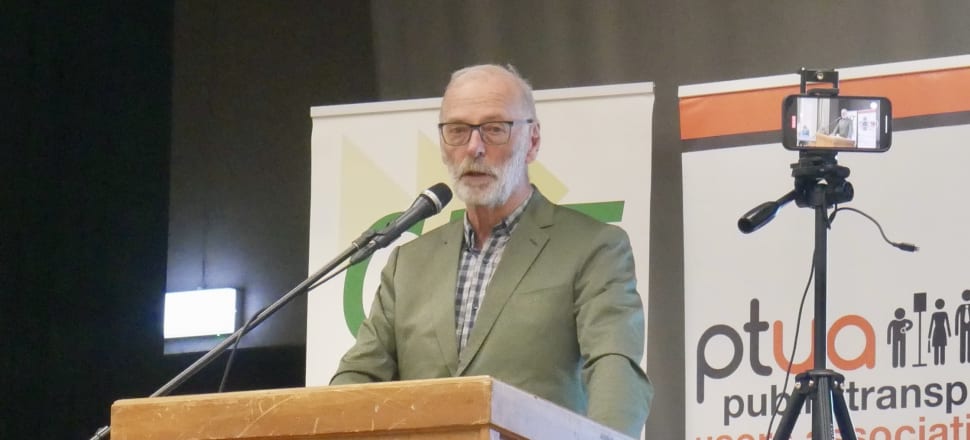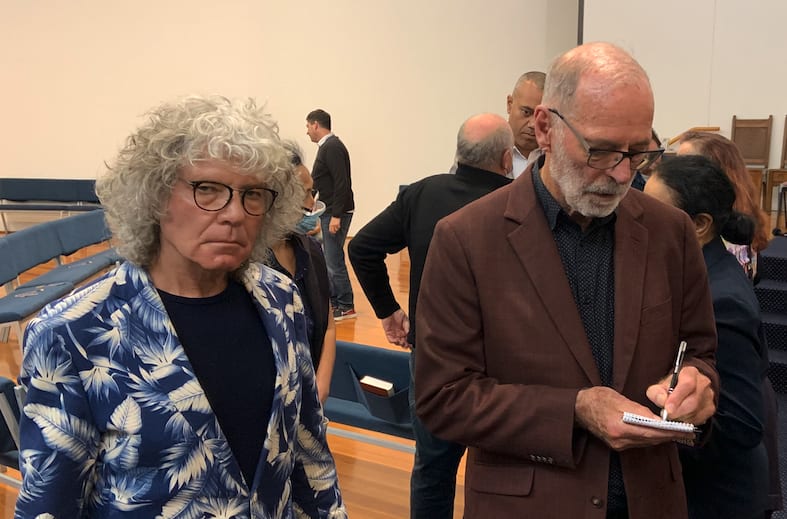
Updated: Auckland's new mayor is the kind of politician you can take at face value – if he promises disruption and radical change, it's more than likely to eventuate. Tim Murphy distils what he's promised to do.
Pity the poor road cones.
The mayor-elect of Auckland, Wayne Brown, is coming for them.
And for non-synchronised traffic lights.
And for the directors of all Auckland Council-controlled companies.
And for the high-paid echelons of executives of the Auckland Council.
And for the Ports of Auckland's money – $400m a year to cover the use of the downtown land it occupies.
And for expensive cycleways.
And for the real numbers of a possible '$2 billion' cost blowout of the City Rail Link underground train project.
And for 'Wellington' – ministers, MPs and senior officials will be 'told' what Auckland needs and told to pay up.
Stand by.
He has stormed the mayoral office with an emphatic majority, turning his unshakeable self-confidence through the campaign into reality.
Now Tropical Cyclone Wayne is changing course and the people, policies, spending and humble orange road cones that have ruled Auckland are in its path.
The individual perhaps most bracing himself for the arrival of Brown is the Auckland Council chief executive Jim Stabback, who is the sole appointment made by the mayor and councillors and who presides over 8000 staff and billions in revenues and spending that the new mayor has very firm views about.
Stabback might wonder if the $630,000* salary the outgoing council agreed for him will be worth it, given what lies ahead.
Brown has for months criticised a council organisation that is fat, wasteful and lacking in candour and transparency with ratepayers. He believes bands of top executives are overpaid and has sought advice on how, under employment laws, he might take action to reduce their number or incomes. "You get in there... and there's always a gap in employment contracts," he has said.
By including the staff of the council-controlled organisations, Brown uses a total employee number of 12,000 and compares that with the Brisbane council's 8000 to declare Auckland Council 50 percent overstaffed.
"There are 60 people in there who are paid $300,000 or more. That's 40 too many. In my view, actually, that's 58 too many. We've got out of control at the top," Brown said on the campaign trail.
His philosophy is to cut at the top, not the bottom of the staff levels, so as to protect services to the community.
"The people in there thinking about my arrival .... none of them should take my arrival as a vote of confidence in what they're doing," he said weeks ago.
Stabback will have his managing skills - both upward to Brown and downward to a restless executive - tested in coming months.
As will the chairs of the boards of the CCOs. Brown promised that Auckland Transport would be the first to go and, on cue, the chair Adrienne Young-Cooper announced her resignation on Saturday night to clear his path.
Candidate Brown said there needed to be a wholesale cleanout, with new directors coming with expertise from the areas the businesses conducted for Auckland. He reckoned the suburban development arm Eke Panuku and economic development agency Auckland Unlimited ought to be abolished.
Auckland Transport, if the new mayor has his way, will no longer come up with 'social engineering' policies such as encouraging public and active transport mode use, but instead simply do what Aucklanders ask for, via the council, to alleviate congestion and disruption.
Brown, an engineer, has a particular focus (repeatedly articulated at the many campaign debates) on introducing new technology to the city's buses which would synch with traffic lights to allow buses through intersections.
The engineer in him believes there are far cheaper ways of building cycleways than the methods used by AT and its contractors.
His financial demand for the port's $400m a year (calculated as a small percentage of the estimated value of the land it inhabits downtown) sounds a bit like former US President Donald Trump's demand that "Mexico will pay for the wall". By all political and business accounts, Ports of Auckland Ltd just could not raise that kind of sum once, let alone annually.

Brown will also be taking a hands-on, or an eyeball to eyeball, approach to his management of the 20 councillors who ultimately will hold the votes that count for him to implement many of these radical plans.
He says they will be "encouraged" to focus on the numbers, to understand the costs and implications of everything they suggest or support.
On progress results, there would be approximately 12 councillors of the 20 who could be viewed as centre-right, with one newbie possibly leaning their way - Ken Turner in Waitakere is opposed to Three Waters and pledged to fight the council's "extravagant costs" - and seven for the centre-left. That mix would be encouraging for Brown and his team.
Politicians further afield, like ministers and MPs, will be told what Auckland wants, and made aware their only role is to supply the taxpayer funding. Brown is explicit in planning (between now and the general election within the next year) to put political heat on central government politicians to win backing for Auckland's aspirations and needs.
If he follows through on campaign rhetoric, Brown will want an early reveal to both him and the public of whatever the extra costs delays caused by Covid and global supply chain interruptions are for the City Rail LInk joint venture between the Crown and council. He has not showed a willingness to wait the weeks or months the parties to confidential negotiations over that figure have indicated it would take to provide a number.
He supports the council's special rate for climate change measures, calling it "a bold move to set aside a certain amount of money for climate" but favours reopening the debate on what the dollars should be spent on, despite an extensive consultation before its implementation. But that 2.2 percent extra rate would continue. "It does, yeah" he confirmed, when quizzed on its fate.
As for the road cones?
The new mayor wants to rid the central city of the orange cones from early in his tenure. His theory is that many of the 'traffic management' arrangements near public works and private construction sites are blocking too many traffic lanes, unnecessarily and for too long. Behind the barriers, space was too often used for portaloos and parking contractors' utes, he claimed.
He wants developers to have to pay for the public roading space they take up, effectively leasing footpath and roading space for the duration of their disruption. His view is that charging for the use of the roads will quickly see the coned and fenced-off sections reopened for motorists and pedestrians.
His to-do list is a blizzard of governance, management and regulatory interventions. Brown wants to meet councillors one-to-one once they're all confirmed and work out how they all work to implement the mandate he now claims for radical changes.
On Saturday night, the Karangahape Rd apartment resident was with his family and supporters at a celebration function in Ponsonby. Last Sunday he had, he told a group of voters, been heading out surfing, so some time in the elements at Piha might be in the offing today before the challenge of 'fixing' this city begins - in earnest.
*An earlier version of this story reported Jim Stabback's salary incorrectly as $715,000, which was a market comparable figure debated during the campaign. His salary of $630,000 was raised from $600,000 by the council in late 2021. Apologies for the error.







